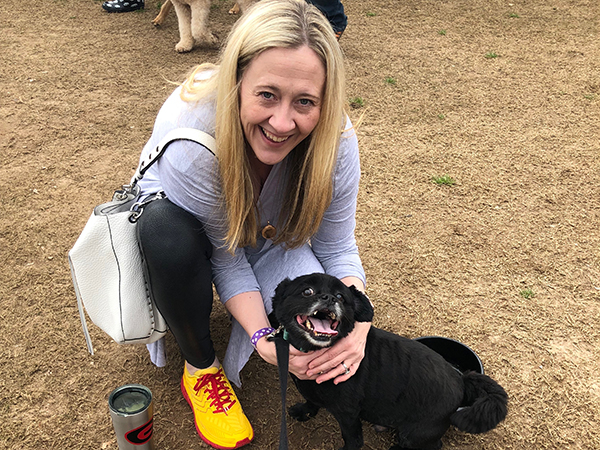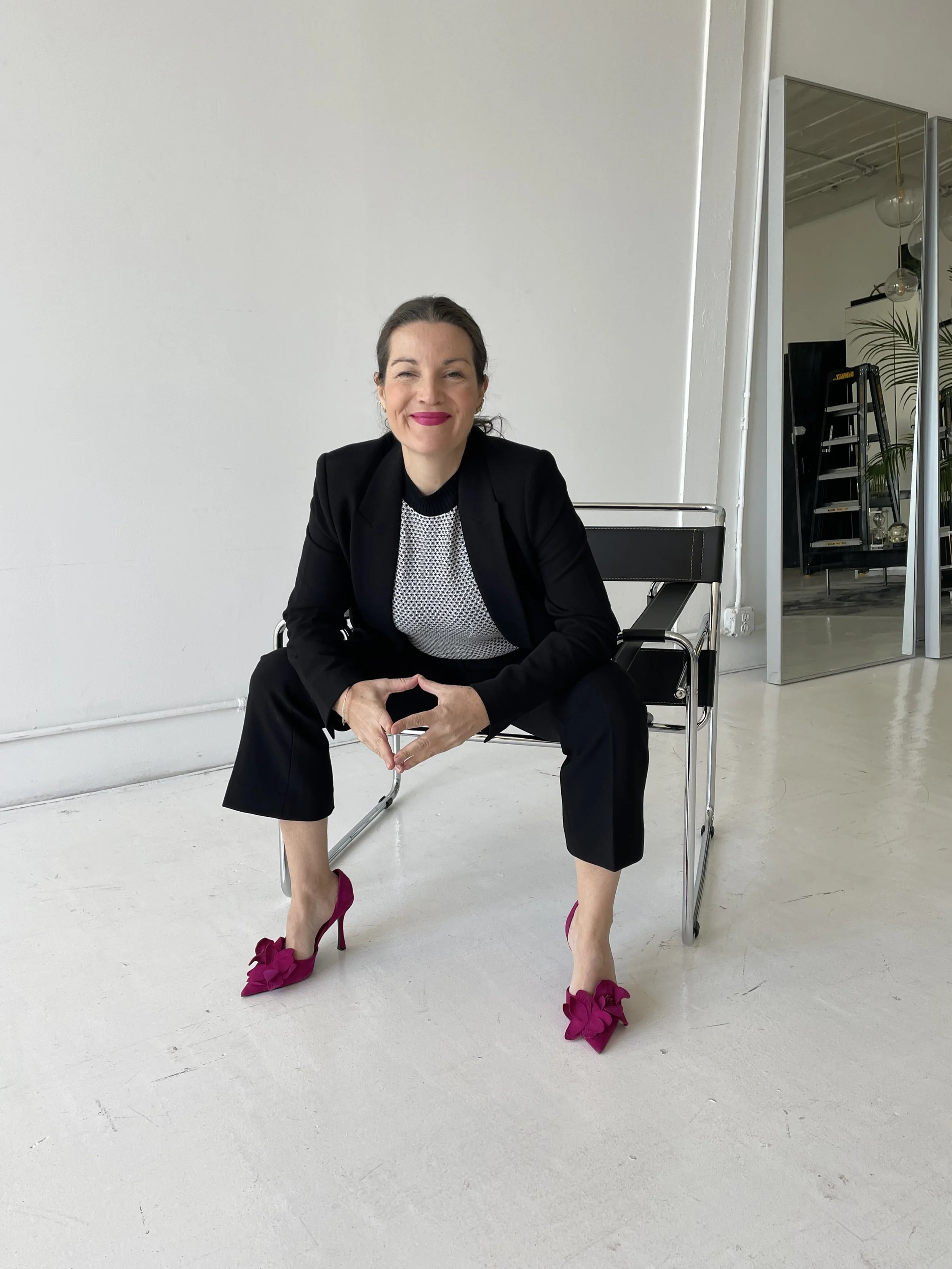Our Stories: Carrie Neal
Drinking more than you want to is just about the most common experience a drinker can have. You are not alone in questioning alcohol and there is so much power in finding another way.
I have yet to meet someone who quit drinking who didn’t completely up-level their life. Read and see.
This series shares stories of strong-ass women (and men!) who decided to stop settling for hangovers and mediocrity and discovered their best selves through an alcohol-free lifestyle. They inspire a whole new generation of people to know that you don’t have to drink to be “normal” or fit in. Why not be exceptional instead?
carrie neal’s story
Carrie Neal Walden has a bigger than life story about alcohol abuse and mental health issues all while working in the restaurant industry. When a doctor told her she had only 12-18 months to live, she knew immediately that she wanted to live and completely turned her life around. Today she is grateful to be sober, happily married and shares her light with the world. Her story is fascinating . . .
Q and A with Carrie neal
What did your drinking look like before you quit?
By the end, it was pretty much some amount of vodka in my body, 24/7. That was the culmination of about seven solid years of increasing amounts that had been mostly glasses of wine some nights in my twenties, i.e. the norm in my social circles. I was exhausted, physically, emotionally, everything—I had felt some kind of an "end" coming for about the last six months but truthfully didn't know whether I would quit or die. I was at about a handle of vodka every day, day and a half.
When you became consciously aware you were drinking more than you liked, did you try to moderate or cut back? How did that go?
Looking back, and if I had been honest at the time, I began drinking "too much" in my mid- to late-twenties. Technically it would have been classified as alcohol use disorder in current terms before I crossed that "line". I don't really recall attempts to moderate—it was more like I spent time with friends who socialized after I got divorced and had lots of nice dates with nice wine at fancy places, and wine with the girls and so on...as I lost my way. I gradually found people who drank even more than I did as I fumbled with my original sales career and got into the restaurant world. It was a perfect storm of self-doubt, regret, all kinds of stuff and my drinking mainly just kept increasing. I really had no interest in moderating—just performing well despite whatever I chose to drink. I did begin hiding my drinking from others, even boyfriends and especially my parents—we all knew I had a problem.
How long have you been alcohol-free?
Since 2/21/16
How did you get sober? What did you do in the first six months?
I quit cold turkey. I had taken a fall at work, where I was a server. I had been drinking, so I went to my private doctor; I had badly hurt my ribs and was sent home to use a heating pad alternating with ice. I passed out with the heating pad on high and blistered my side. I went back to my doctor and for some reason, she sent me straight to the liver specialist. He told me straight up I had a twelve to eighteen months if I didn't quit drinking. He asked me WHY I was killing myself? Accomplished, educated woman, had made a lot of my life, and was now destroying myself. I had NO answer to that WHY. I had the sudden thought that I didn't want to die, for the first time I recalled in quite awhile. I had vodka in my bag in his office that day—I went home and finished it, then quit cold turkey.
I started AA, sick and desperate and angry at myself. I kept seeing my doctor and liver specialist for liver panels and other tests and went to an amazing psychiatrist for my mental health and anxiety. I also took Antabuse for the first 90 days.
I completely changed everything in the early months. I had a LOT of healing to do and suffered so many side effects, from ear ringing to dry heaving to leg seizures, spatial distortion, drenching nightmares, on and on. I established a routine and it started with a meeting a day and the smallest to do lists. Getting back to being a functioning adult. At six weeks I took a fast food job—that was both incredibly humbling and incredibly helpful in keeping structure and routine in my new life. It wasn't enough to pay the bills, so at about five months I went back to serving. I created rules around that to protect my sobriety.
I kept a very small social circle—mainly my parents and folks I started to talk to in meetings. I gradually added lunches or coffee with friends I had let slip in my drinking years who were all supportive and glad to have me "back."
I did start dating my now husband. We have a unique story in that we dated in high school and he was the only person I can imagine having let into my tight circle at that point in my life. He called me out of the blue for lunch and it turned out he was one month sober. Our beautiful story evolved from there and we built a very strong foundation—I have to keep my recovery first no matter what; he, his own, then what we call "Team Us."
What does a hangover-free life mean to you? Has your sense of happiness changed?
No hangovers! No morning puking or dry heaving! No "mysterious" bruises or headaches or stupid decisions....all of this is amazing even after three years! And, one of the big things I say it all means is freedom. To make choices about where, when, and what I do—and not worry about a substance, in any way. I'm kinder, more patient, certainly more tolerant of others...and I have learned how to own up to (not hide or obfuscate) my mistakes when I make them. I have joy. No one has a perfect life but I consider mine perfectly imperfect.
Removing alcohol as a numbing agent leaves a whole lot of emotions on the table. How did you cope with your newfound feelings and fears?
HA! Love this question because it was the proverbial and baffling roller coaster for me. I am someone who feels hard any way, and sorting through the ups and downs at first wasn’t easy. I remember at around four months when the most ridiculous tiny things made me mad (like the way my mom drove to take me to a meeting because I preferred a different route!!). I didn't have a car so I had to rely on others for help but gradually become more self-reliant, internally motivated, and re-engage positively with the world. I can't reiterate enough how re-learning basics, doing one thing in front of me at a time, and having supportive people around me helped me keep believing that whatever my life was going to be and fear about it, was worth taking the risk being sober so I could find out. I also learned to feel deserving of good feelings again. And of good relationships. Because I became someone worthy of all the good things and people.
How has quitting alcohol pushed you out of your comfort zone in other areas in your life?
Early on I remember being rattled at stuff like an afternoon at the country club, around the "life" and people I'd grown up with—who all seemed to be having these perfect days with perfect children and perfect summer pool clothes and....it freaked me out. I had to learn to re-frame what my life had become to MY journey, not compare it to others. I also made conservative choices on socializing and I learned what I really enjoy doing, and don't. I can work a room with great ease-- but it is very tiring. Early on, I planned ahead for everything (and I still have NA beverages on hand all the time!), had an escape route, or someone to call or text.
But mostly, I got out of myself. Rather than focusing on just me, what I wanted or how I think things should be, I put others first. Service is a big thing in twelve step and I have found it means little things like remembering the name of the lady who helps me at Chick Fil A when I get my morning Diet Coke, up to big stuff like working with the restaurant industry recovery group Ben's Friends. Sobriety is more than just quitting alcohol. It’s changed how I engage with the world, how I feel, all the things I am better at—it’s pretty amazing and sometimes surprising.
Do you have any tips or words of inspiration for people exploring sobriety?
If alcohol is causing a problem in your life, whatever that has begun to mean to you—it's ok to stop. You don't have to be an "alcoholic" to decide drinking is bad for you. Not everyone gets to a quit or die point like I did and I haven't found anyone who regrets just pausing to think about what their drinking means. Help and support are around us, more than ever. We need each other and truthfully, the people who care if you aren't drinking usually have some problem with it or other issues themselves.
Plan, practice and change the "people, places and practices" as much as you need to so your sober life, less alcohol fueled life, or a life in recovery is easier at first—then becomes a beautiful norm.
Carrie Neal was recently featured on Giving Kitchen stories:
and find her on IG:

















